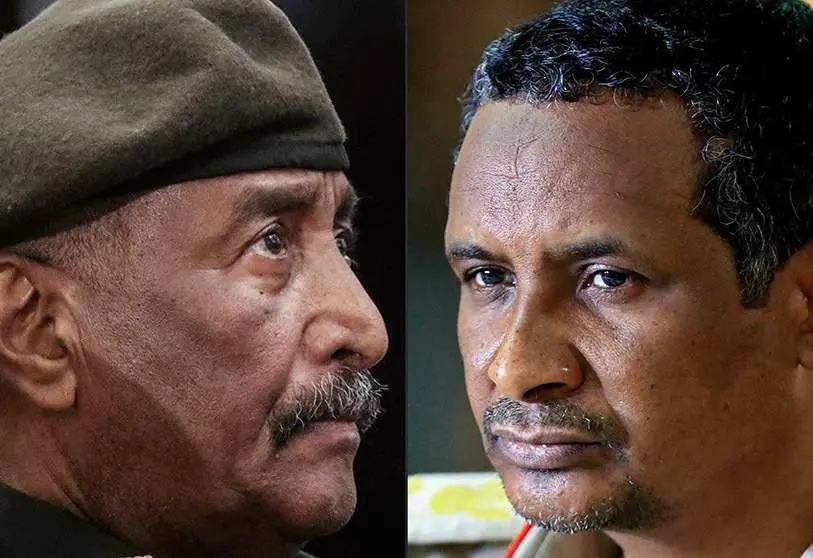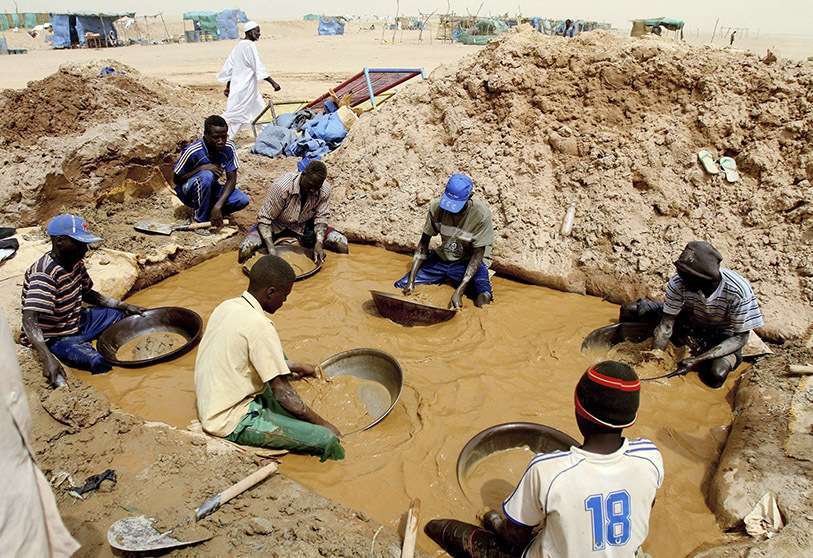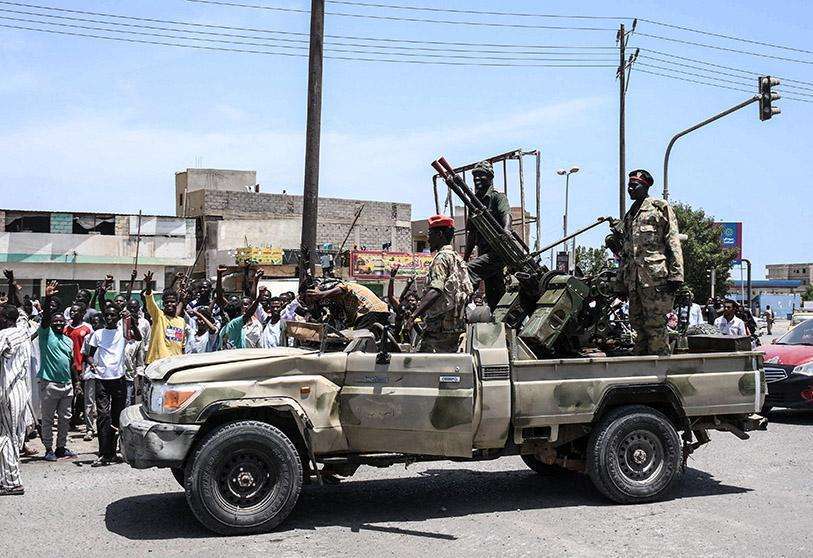The shadow of the Wagner group in Sudan's conflict

It will soon be a week since the outbreak of violence in Sudan that has already claimed the lives of more than 300 people. The fierce fighting between the Sudanese army of Abdel Fattah Al-Burhan and the Rapid Support Forces (FAR), led by Mohammed Hamdan Dagalo, continues in various parts of the country. In this regard, it is worth highlighting the critical situation in places such as Gedaref, Kassala, Darfur and the capital, Khartoum, from where thousands have fled due to violence and shortages.
In recent days, the international community has been pressing both sides in the conflict to cease hostilities and establish a dialogue that could lay the foundations for a permanent ceasefire, as the only two truces reached between the army and the FAR have failed.
#Sudan ??: footage from #ElObeid (#NorthKordofan) gives a sense of the intensity of clashes today.
— Thomas van Linge (@ThomasVLinge) April 20, 2023
Residents say this is the most ferocious fighting as of yet. pic.twitter.com/To8WqHDtbW
Sudan's stability is key to the region, which is why countries such as Egypt, Libya, Kenya and Chad are watching the situation in their neighbour with concern, urging military leaders to stop the attacks. As Susan Stigant, Director of the Africa Programme at the United States Institute of Peace (USIP), warns, a conflict in a nation in the Red Sea area "risks spreading and spreading instability". In this sense, the analyst highlights the humanitarian crises and the flow of refugees, recalling the high number of displaced people in Sudan due to the war in the Tigray region of Ethiopia.
#Sudan ??: photos from #ElObeid in #NorthKordofan. Widespread destruction and chaos in the city. Death and injured lie in the streets. pic.twitter.com/mZyBTaR7Hj
— Thomas van Linge (@ThomasVLinge) April 20, 2023
In addition to being fundamental for the countries in the region, Sudan and its geostrategic relevance have been targeted by several powers seeking to increase their influence in the region, such as China and Turkey. On the other hand, the United States seeks to maintain its presence and counteract the weight that the other major player in Africa, Russia, is gaining.
Through propaganda and by fuelling strong anti-Western and, in particular, anti-French sentiment, Moscow's tentacles are expanding in several African countries such as Mali and Burkina Faso. Moscow, through the Wagner group, is also present or has been present in places such as the Central African Republic, Libya, Mozambique and Sudan. The latter, now in the midst of a brutal conflict, is of such interest to Russia.
???? Foreign Minister Sergey Lavrov met President of Sudan's Sovereign Council Abdel Fattah al Burhan.
— MFA Russia ?? (@mfa_russia) February 9, 2023
? Khartoum, February 9#RussiaSudan pic.twitter.com/zqO92bDar8
For years, Moscow has sought to establish a military base in the strategic Red Sea city of Port Sudan. After the project was put on ice during the transitional government led by Abdalla Hamdok - Russia blamed the US at the time - the new Sudanese military authorities following the 2021 coup gave the Russian navy a free hand to establish itself in Port Sudan. In return, Russia agreed to supply them with weapons and military equipment.
That uprising was orchestrated and led by Al-Burhan and Dagalo - aka Hemetti - the two strongmen currently fighting for power in Sudan. Since the coup, both have maintained close relations with Russia. In fact, according to a CNN investigation, the two military men allowed Moscow to mine gold in Sudan, which helped bolster the Russian economy to cope with Western sanctions, as well as to finance the invasion of Ukraine. In return, Russia provided military and political backing to both Al-Burhan and Dagalo, now at loggerheads.

With regard to Sudanese gold, the concessions that the Wagner Group has received in the mines through its partnership with Dagalo, who has received Russian military training, have also come to light. The Russian organisation set up by Yevgeny Prigozhin has been operating in Sudan since 2017 and has strong ties to the FAR leader. "In Sudan, Wagner's men are closely controlled by Hemetti, who uses them as security guards in his illegal gold mines," historian and East Africa specialist Gérard Prunier explains to France 24.
However, given the current situation and in order not to lose influence, analysts say that Russia will not bet on just one side. "From the Russian point of view, it is clear that there is no need to choose sides because there is too much to lose by playing the wrong card," Roland Marchal, a researcher at the Centre de Recherches Internationales de Sciences Po (CERI), told the French media outlet. "In the end, they will choose the winning side," he adds.

However, there are signs that Moscow and the Wagner group may be backing the side of Dagalo, who visited Russia in February with the aim of establishing "deeper ties". As Sudanese and regional diplomatic sources revealed to CNN, Wagner has been supplying the FAR with missiles to assist them in their fighting against the al-Burhan-led army. The sources claim that this weaponry has "significantly" strengthened the FAR and Dagalo in their struggle for power.
CNN:
— Clash Report (@clashreport) April 20, 2023
Russian mercenary group Wagner has been supplying Sudan’s Rapid Support Forces (RSF) with air defense missiles to aid RSF’s coup attempt against Sudanese Army along with Libyan putschist Haftar. pic.twitter.com/YoMRvGwGDe
The US media also reveals - based on satellite imagery - that activity at Wagner's bases in Libya is experiencing an "unusual increase". These movements, coupled with statements from Sudanese sources, suggest that both Russia and the Libyan National Army (LNA) led by Marshal Khalifa Haftar may be supporting the FAR.
The LNA's alleged support for Dagalo has been commented on by several media outlets and analysts, although its spokesman, Ahmed Al-Mismari, has strongly denied it. On the contrary, the general has stressed his commitment to "stability and security" in Sudan, presenting himself as a possible mediator between the warring sides.








